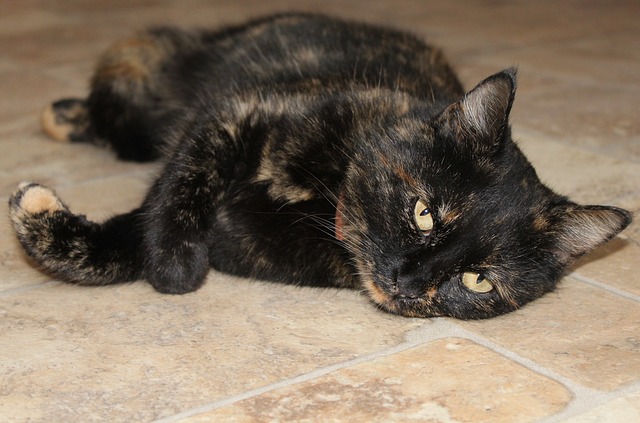If your cat suffers from any inflammation-related problems, such as arthritis, itchy skin, ulcerative colitis, inflammatory bowel disease, asthma, or various skin diseases, then you’re probably desperate for anything that might help your kitty feel better. Luckily, there is one particular nutrient that may be lacking in your cat’s food that may help reduce inflammation. Omega-3 fatty acids, commonly found in fish oil, are a well-researched supplement for reducing inflammation.
According to VCA Animal Hospital:
“Fish oil supplements are among the most commonly used supplements in all of veterinary medicine, to the point that they are considered to be a ‘mainstream’ or conventional medication rather than an alternative treatment. As a result, there is a large amount of clinical experience using fish oil in dogs and cats, especially in the treatment of allergies.”
Fatty acids such as arachidonic acid (AA), eicosapentanoic acid (EPA), and docosahexaneoic acid (DHA) are important components of cell membranes, and they signal cells to decrease inflammation. According to the experts at PetCareRX, EPA and DHA – two omega-3 fatty acids – are essential nutrients that are poorly synthesized in cats, which means they need to get those nutrients from an outside source. They go on to say:
“EPA, one of the two omega-3 fatty acids in fish oil, acts as an anti-inflammatory. It will help with any condition that causes inflammation of the heart, kidneys, skin, and joints—such as arthritis. It will ease inflammation due to allergies, and reduce itchy skin and dandruff. This can also be an effective way to potentially decrease the incidence of hot spots on your pet.”

Reduced inflammation means less pain, redness, or swelling in places like joints, the skin, or other organs in your cat’s body. DHA in particular helps to promote neuron development, which is why it’s so highly recommended as a supplement for both pregnant women and pregnant pets – it’s a crucial nutrient for brain development in a growing fetus, as well as the first few months of a kitten’s life. The benefits of DHA don’t end with kittenhood, though. It provides a lifetime of benefits for any cat.
Omega-3 fatty acids are commonly found in fish like salmon, sardines, mackerel, black cod, herring, anchovies, and albacore tuna, but they may also be found in things like walnuts, flax, and krill.
While Omega-3 is a wonderful supplement for most cats, it’s not for everybody. According to PetCareRX:
“Omega-3s have been shown to slow blood clotting, by decreasing the ability of blood platelets to stick together…So be especially sure to consult your vet if you want to give fish oil to an outdoor cat who can get in scrapes or fights. For this same reason, don’t use fish oils along with any blood-thinning dog or cat medications before consulting your vet.”

You should also speak to your vet before adding an Omega-3 supplement if your cat is on anti-inflammatory drugs.
Your cat’s food may claim to contain Omega-3, but how much of it survives the cooking process and makes it to your cat? According to Pet Education:
“Fatty acids in foods are subject to degradation. Overcooking can destroy fatty acids. Improper storage or a suboptimal amount of antioxidants in dry food may result in rancidity and a subsequent deficiency in fatty acids.”
This is why your cat’s food probably doesn’t have as much Omega-3 as advertised – much of it gets destroyed in the cooking process. Look for supplements that have been cold pressed in order to retain the maximum amount of nutrition.
These statements have not been evaluated by the Food and Drug Administration. This product is not intended to diagnose, treat, cure, or prevent any disease. The information on this website is not intended to replace a one-on-one relationship with a qualified healthcare professional.
(H/T: PetCareRX, Pet Education, Animal Wellness Magazine, VCA Animal Hospital)
Be the first to comment